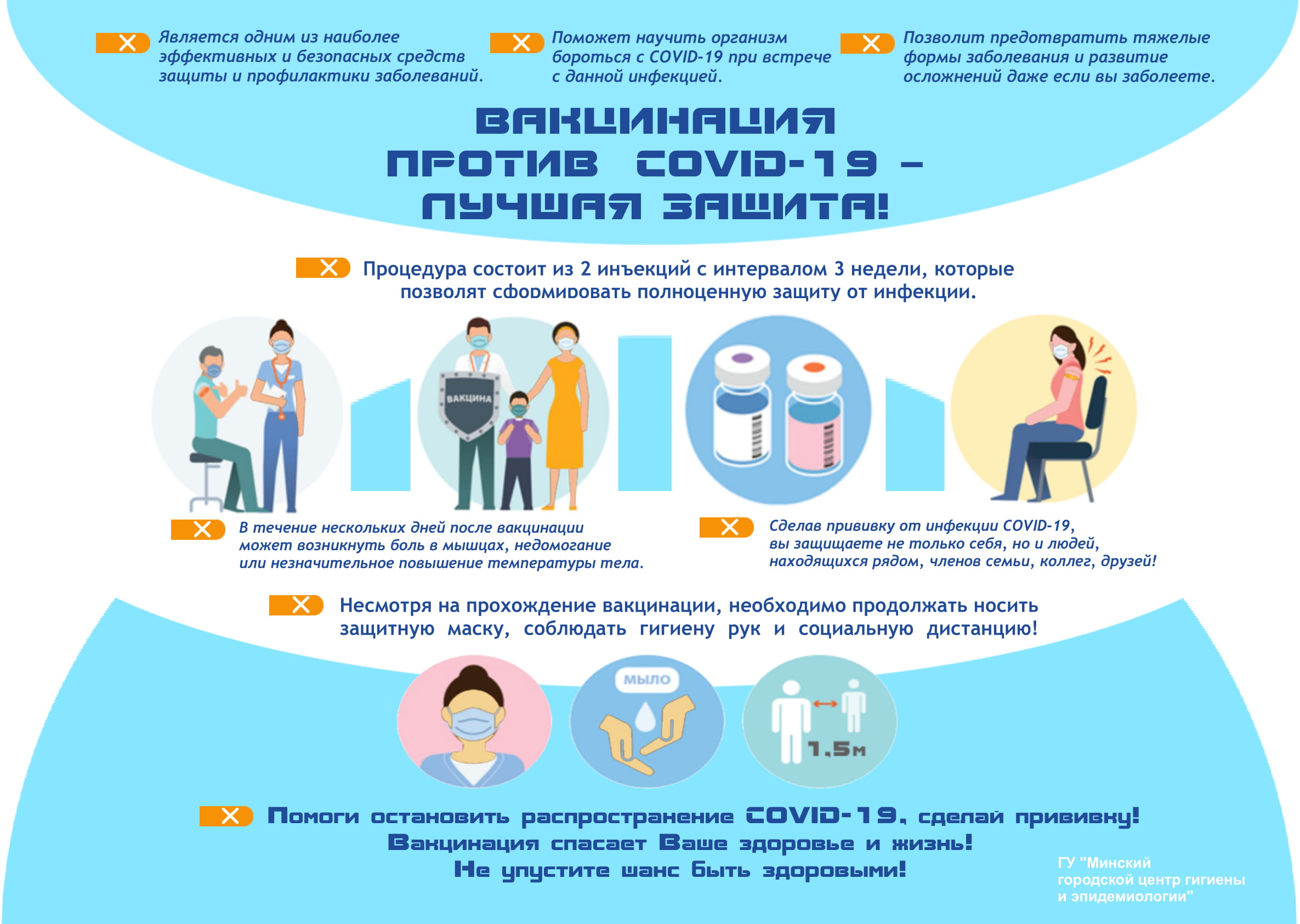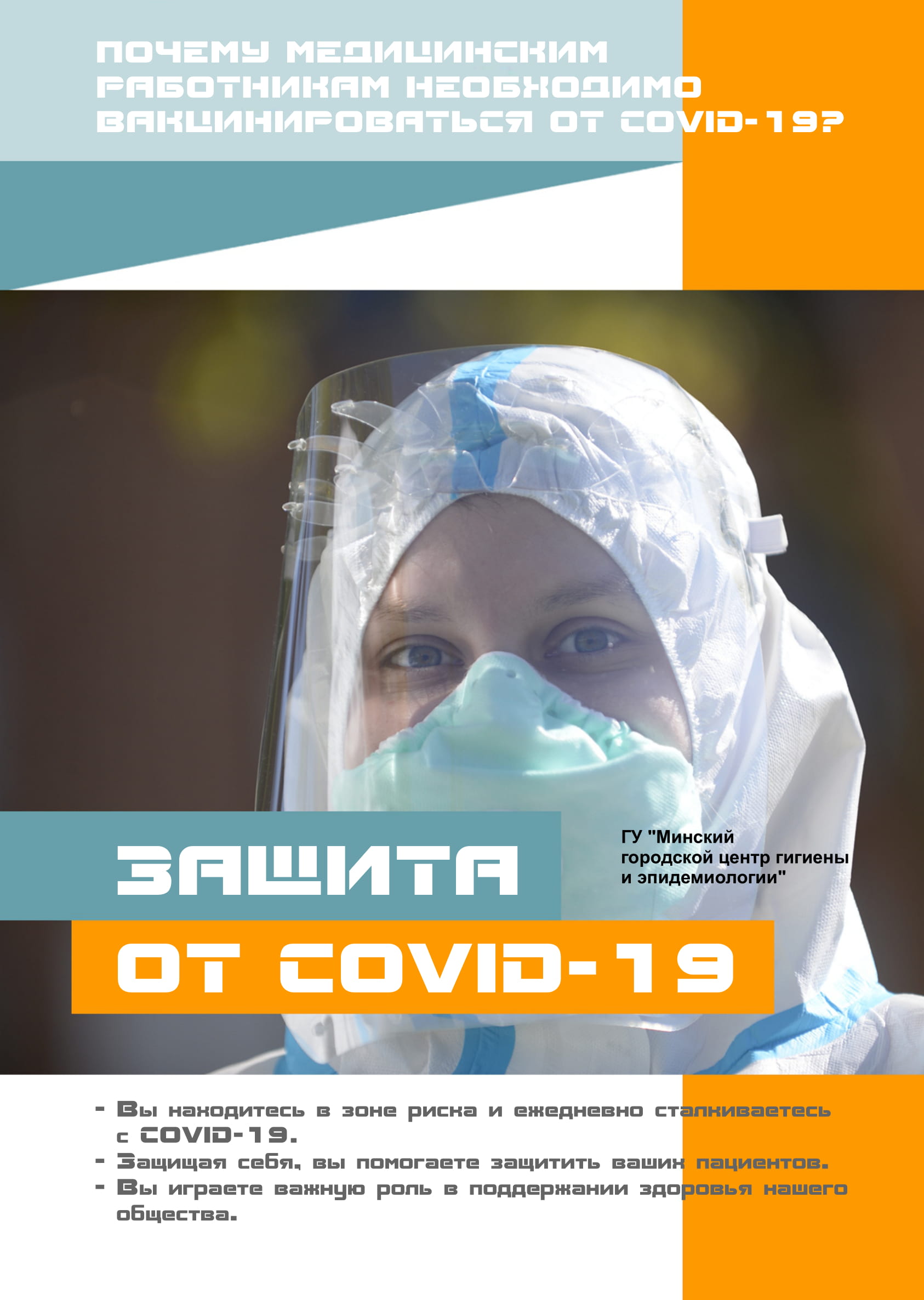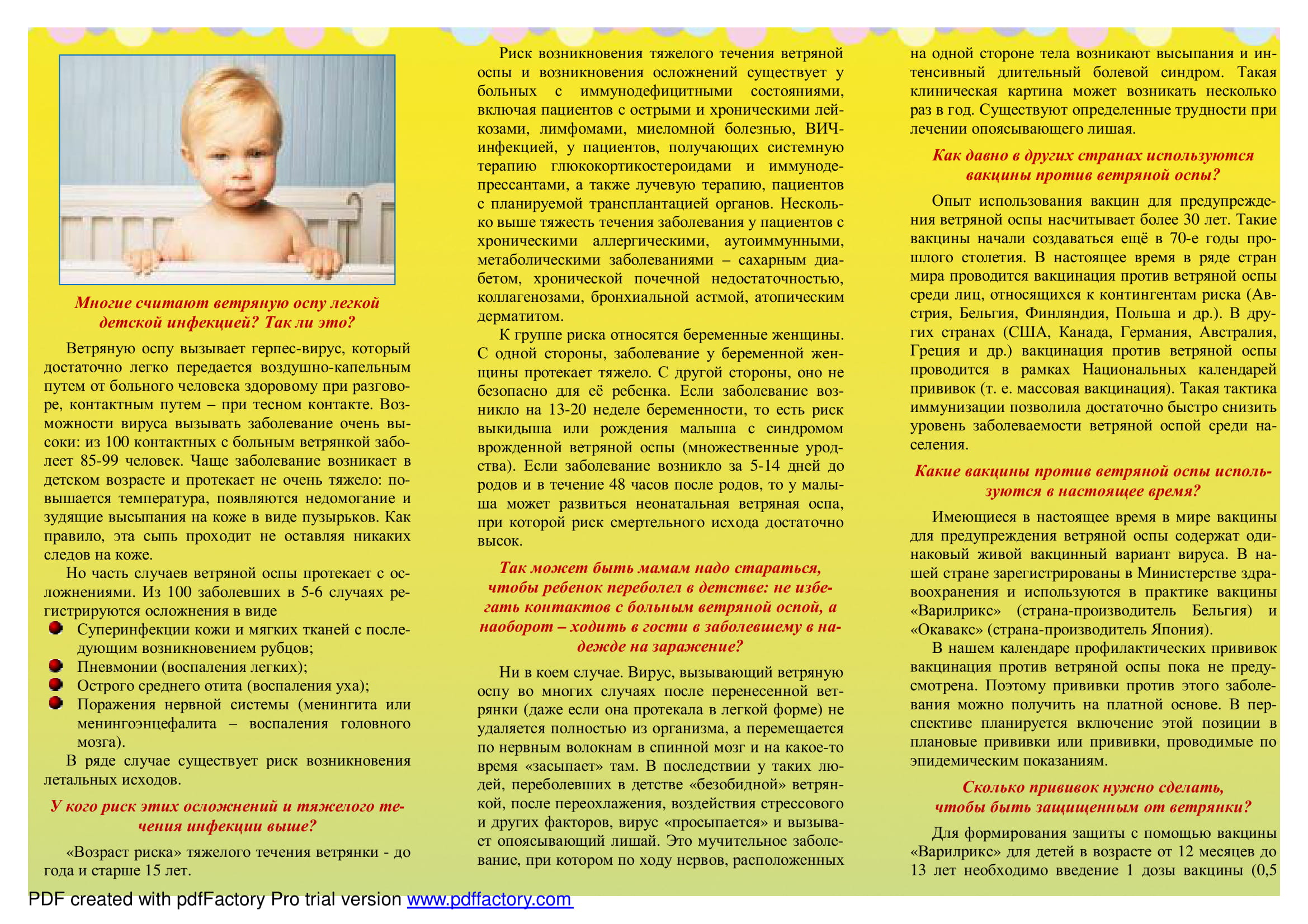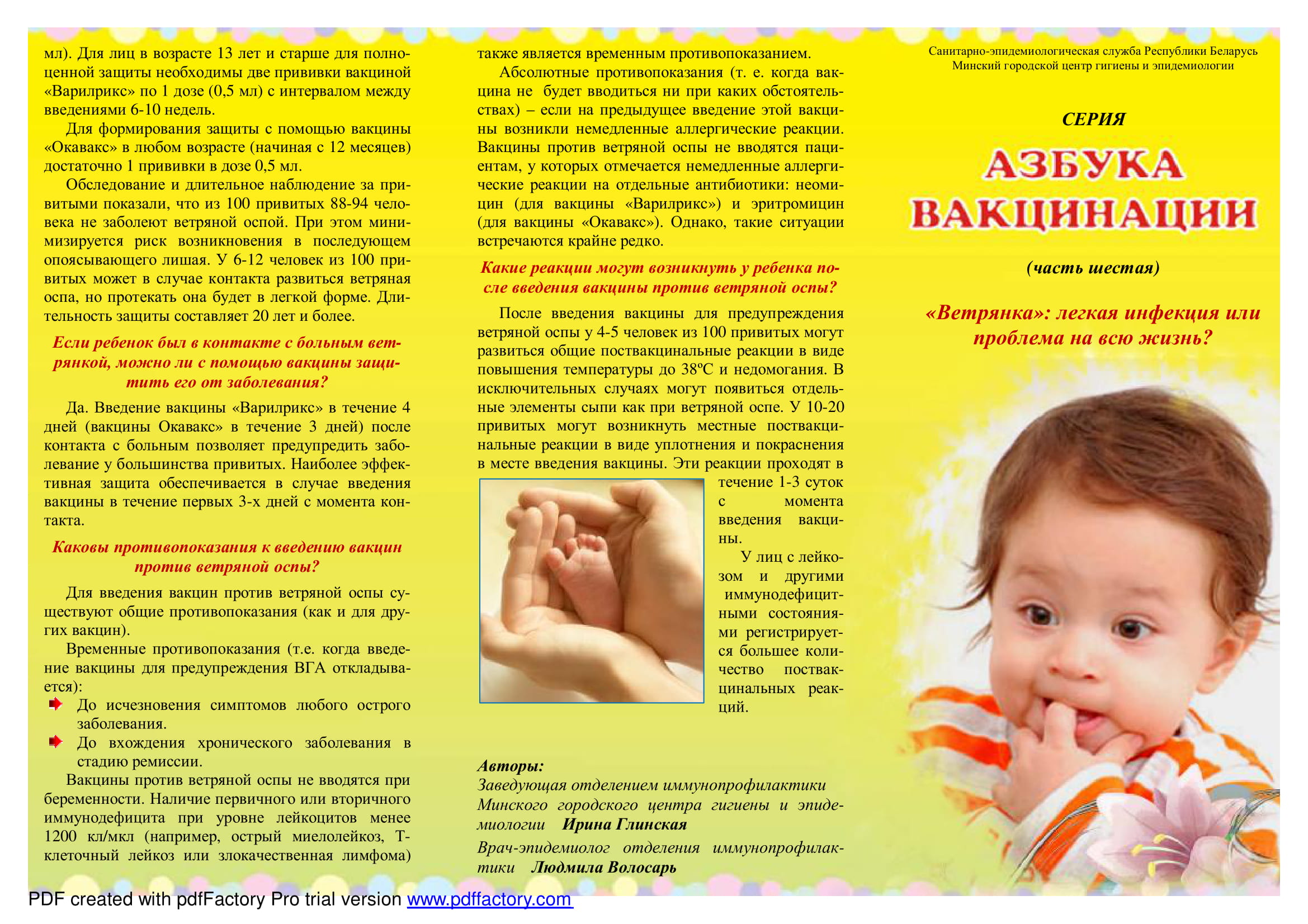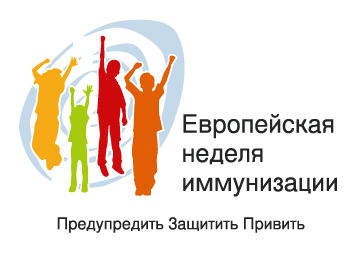
On preventive vaccinations
Preventive vaccinations are carried out to form a specific protection of the body, the so -called immunity, to a specific pathogen of an infectious disease by introducing a vaccine.
In the Republic of Belarus, vaccination of the population is carried out in accordance with the National Calendar of preventive vaccinations and a list of preventive vaccinations according to epidemic indications on a free basis.
Planned vaccinationAccording to the national calendar of preventive vaccinations, it is carried out at a certain time of human life and includes vaccination against 12 infectious diseases:
Viral hepatitis B, tuberculosis, diphtheria, tetanus, whooping cough, hemophilic type B (hib infection), poliomyelitis, measles, epidemic mumps, rubella, pneumococcal infection, influenza.
Immunization according to epidemic indicationsIt is carried out against 18 infectious diseases:
Rabies, brucellosis, chickenpox, viral hepatitis a, viral hepatitis B, diphtheria, yellow fever, tick -borne encephalitis, pertussis, measles, rubella, leptospirosis, poliomyelitis, anthrax, tetanus, tularemia, plague, epidemic mumps.
Preventive vaccinations according to epidemic testimony are held:
persons in contact with a patient suffering from an infectious disease;
persons who have the risk of infection in the implementation of professional activities;
Persons whose infection with pathogens of infectious diseases can lead to a complicated course of these diseases or death.
Preventive vaccinations planning.
Invitation, consent and refusal to conduct them
The date of the preventive vaccination is determined by the specialist doctor: a local doctor-pediatrician (doctor-therapist, general practitioner, neonatologist).
For timely preventive vaccinations, a medical worker invites people who should be carried out to the territorial healthcare organization.
Information about vaccination is submitted to the patient’s medical documentation.
Before conducting a preventive vaccination, a medical worker will surely clarify your consent to its conduct. Consent is given by the patient or in relation to minors - with the consent of one of the parents, adoptive parents, guardians, trustees (hereinafter - legal representatives) orally, and a medical officer is made on consent in the patient’s medical documentation.
At the same time, in accordance with the current legislation, the patient or his legal representative has the right to refuse to carry out vaccination. In this case, the attending physician in an accessible form explains the possible consequences of the refusal, the refusal is made out by the record in the medical documentation, signed by the patient and the attending physician.
The healthcare organizations have created a multi-level system of working with parents who refuse to conduct preventive vaccinations to their children, which includes conversations with a local doctor, the head of the department, deputy chief physician for a medical part, as well as an invitation to a meeting of the immunological commission with the participation of other specialties (neurologist, otolaryngologist, allergist, epidemiologist and epidemiologist and epidemiologist and epidemiologist and epidemiologist and epidemiologist and epidemiologist and epidemiologist and epidemiologist and epidemiologist and epidemiological pr.).
The procedure for conducting vaccinations
The doctor should explain to the patient or his legal representative the need for vaccination, as well as inform about the infection against which a preventive vaccination is carried out, about the name of the vaccine, about the presence of contraindications and possible adverse reactions.
Before vaccination, the doctor necessarily examines the patient, measures the temperature, clarifies the presence of complaints about the state of health. The previous reactions to vaccinations (the presence of body temperature, a deterioration in well -being, etc.), the presence of allergies to drugs, food products, and available chronic diseases are taken into account. Sometimes, to resolve the issue of the possibility of vaccination to the patient, the doctor prescribes additional laboratory and/or instrumental studies.
In the absence of contraindications for vaccination, the doctor will issue permission in a medical card, which is a prerequisite for the preventive vaccination.
Contraindications to vaccination
Preventive vaccinations are carried out by persons only during the absence of acute or exacerbation of a chronic disease. Therefore, for the period before the recovery, disappearance of symptoms, normalize the condition and recovery after the disease, the doctor will establish a temporary (long) contraindication to immunization.
Currently, the list of absolute contraindications for immunization with individual vaccines is small - this is a severe reaction to the introduction of the previous dose of the vaccine (anaphylactic shock, quinca edema, generalized disfigurement form, bronchospasm), as well as documented allergies to the components of the vaccine, etc.
The conclusion on the establishment, cancellation or extension of permanent and long -term contraindications is issued by the immunological commission of the territorial healthcare organization, which determines the further tactics of the patient's vaccination.
In case of violation of the immunization periods provided for by the National Calendar of preventive vaccinations, due to medical contraindications or refusals, pediatrician (general practitioner) of the territorial healthcare organization, preventive vaccinations are prescribed taking into account the optimal and minimum intervals between the introduction of doses of vaccines (an individual calendar vaccinations).
What reactions can be after vaccinations?
Modern vaccines are effective and safe immunobiological drugs. However, like any drug, the introduced vaccine can cause the natural appearance of individual symptoms of varying degrees of activity.
The post -vaccination reactions that accompany the processes in the body after the introduction of vaccines are due to the formation of protective antibodies and the formation of immunity. The post -vaccination reactions are not prolonged (from several hours to several days) and do not leave consequences for the body. They can be divided into two groups:
Local - can be manifested by redness, compaction, pain at the place of introduction of the vaccine;
General ones - can manifest itself in an increase in body temperature, anxiety, general weakness, malaise, etc.
They also distinguish a group of serious undesirable reactions - these are changes in the body associated with vaccination and passing within the framework of pathological changes (for example, the appearance of an infiltrate of more than 8 cm at the place of administration of the vaccine in the first two days or an increase in body temperature above 400C, the presence of seizures). Such reactions arise extremely rarely - 1 case for several hundred thousand or millions of vaccinations made.
If any symptoms occur in the period after the vaccination, it is necessary to inform a doctor who will evaluate the severity of their manifestation, give individual recommendations. Medical assistance provided in the event of serious reactions avoids the consequences for the body.
It is also necessary to say about the coincidences - changes in the body that arose during the period after a particular vaccination and not related to vaccination.
It is very important to correctly distinguish the post-vaccination reaction and any disease that coincided with vaccination. Medical assistance in the case of the development of the post-vaccination reaction and any disease will be different.
Reference. For example, the child received a vaccine using a vaccine against viral hepatitis B. At the same time, he “picked up” one of the respiratory viruses that caused him an increase in body temperature to 39 ° C, weakness, lethargy, redness and “sore throat”, a runny nose. This complex of symptoms allows us to say that the symptoms that occur after vaccination are not associated with the introduction of the vaccine (because they are not characteristic of the post -vaccination reaction to the introduction of a vaccine against viral hepatitis B), but are associated with the joined infection.
The number of complications as a result of an infection of thousands, and sometimes ten thousand times more than after vaccination.
Compliance with an individual approach to the appointment and conduct of vaccinations ensures minimizing the risk of post -vaccination reactions.
On vaccination traveling abroad
Before visiting foreign countries, it is advisable to obtain relevant information about infectious diseases characteristic of the country of stay, as well as measures of their prevention, including mandatory and recommended vaccinations. To obtain a consultation, you can contact the specialists of the territorial healthcare organization, the city center of vaccine prevention in Minsk, territorial (city) centers of hygiene and epidemiology.
Take care of preventive vaccinations before traveling abroad in advance, because For different vaccines, there are different application schemes, it takes time to form protective immunity.
Prepared using information materials of the State University "Republican Center for Hygiene, Epidemiology and Public Health"
Actual information on vaccine prevention of infectious diseases, the epidemiological situation is posted on official sites:
World Health Organization: www.euro.who.int
Ministry of Health of the Republic of Belarus:http://minzdrav.gov.by
GU "Republican Center for Hygiene, Epidemiology and Public Health": www.rcheph.by
GU "Minsk City Center for Hygiene and Epidemiology":http://minsksanepid.by
Individual consultation on the prevention of infectious diseases, including Vaccinoprophylaxis can be obtained from specialists from the city center of vaccine prevention located on the basis of UZ "City Children's Infectious Clinical Hospital" (Contact information: 80172022541).
